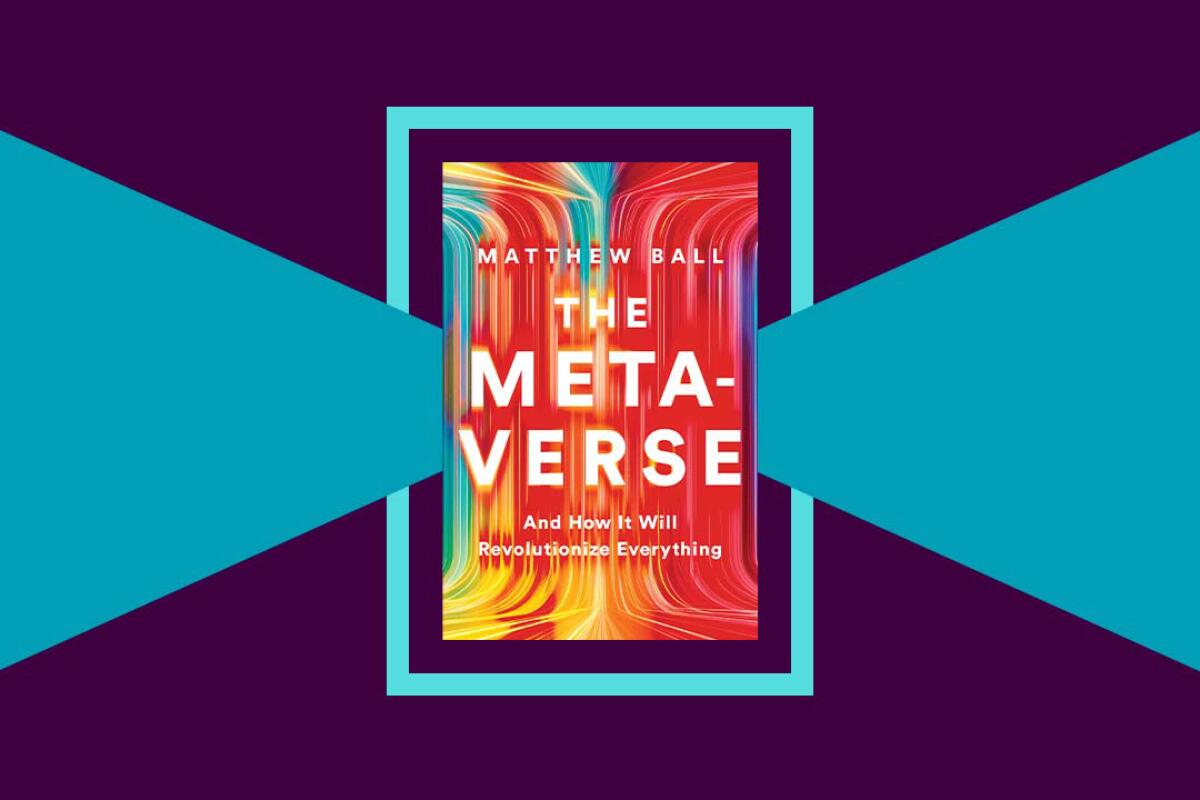After ‘Thor: Love and Thunder’ box office, a Marvel Phase 4 crisis? Please.

- Share via
Welcome to the Wide Shot newsletter about the business of entertainment. Sign up here to get it in your inbox.
The performance of “Thor: Love and Thunder,” a hit by reasonable standards, has critics and pundits speculating about whether Walt Disney Co.’s Marvel Studios is in a rough patch and what that might mean for Hollywood’s most valuable franchise.
The Taika Waititi-directed film grossed $47 million during its second weekend in North American theaters, 68% less than it did in its opening weekend — that’s a steep decline for a Marvel movie. The big drop is not surprising, considering the film scored a B+ in CinemaScore audience exit polling; historically for a Marvel offering, that’s a little like getting a B+ in P.E. class. Reviews were similarly middling.
Critics have started to see cracks in Marvel’s Asgardian armor. Some of the recent installments in Marvel’s “Phase 4,” the company’s lingo for its current chapter of interwoven stories, have been less enthusiastically received than the studio’s earlier chart-toppers, taking a bit of the shine off the MCU’s previously unassailable brand. The reception for “Black Widow” and “Doctor Strange in the Multiverse of Madness” was somewhat mixed, and there was outright critical derision leveled at “Eternals.”
That has led to a deluge of commentary asking whether Kevin Feige’s hit machine is losing its way. Is Marvel in a creative slump? Is the company spread too thin while making multiple Disney+ shows on top of releasing several movies a year, all of which are supposed to be connected? Is the firm’s interdimensional plate-spinning act simply getting too unwieldy, while lacking a discernable and compelling larger structure? The studio also has taken heat from some VFX professionals.
Some of these are understandable concerns, coming after the near-perfect conclusion of the Infinity Saga with “Avengers: Endgame.” Quality control is important. And the idea of this superhero factory peaking as a commercial juggernaut must be appealing to people who printed and framed that Martin Scorsese essay about the difference between Marvel movies and cinematic art.
But do such stumbles really justify a crisis of faith for Marvel fans?
I don’t know, but it seems premature.
Despite the handwringing, we’re talking about a fourth “Thor” movie that grossed $500 million worldwide in less than two weeks. It’s going to end up as one of the biggest movies of the year, especially considering that it doesn’t have much competition in the coming weeks. Sure, the “Doctor Strange” sequel declined 67% in its second weekend and didn’t get unanimously rapturous reviews, but it still made more than $950 million.
“Spider-Man: No Way Home” (produced by Sony and Marvel) made $1.9 billion. It also dropped 68% in weekend No. 2, which included Christmas Day.
While many critics have been feeling Marvel fatigue at least since the first “Ant-Man,” the MCU remains a license to print money. If audiences are getting sick of Marvel, they have a funny way of showing it.
This is not to say that angst among fans and critics doesn’t matter. Corporate stewards have to take care with these beloved properties.
There’s a reason Lucasfilm isn’t rushing out “Star Wars” movies every year anymore but is instead switching off release dates every other December with James Cameron’s “Avatar” sequels for the next few years.
The next “Star Wars” movie, Patty Jenkins’ “Rogue Squadron,” isn’t expected to hit theaters until the end of 2023, four years after “The Rise of Skywalker.” And with the Disney+ “Star Wars” shows like “Obi-Wan Kenobi” going strong, for all we can tell, the company can afford to slow down the film pipeline to get it right.
The reality is, we’ve never seen a franchise like Marvel, one that behaves less like a series of theatrical films and more like a TV show with two-hour episodes that each cost more than $200 million to produce. What started with a career-rejuvenating romp for Robert Downey Jr. in the first “Iron Man” is now in its fourth season, so to speak, and getting into stories set in an increasingly complex multiverse. Not everything is going to work.
This is a transitional stage for Marvel in which it’s trying to please fans by bringing back old characters while also introducing new ones to keep things going for years to come. If “Guardians of the Galaxy Vol. 3” or “Black Panther: Wakanda Forever” disappoint, the latter of which is sadly a possibility without Chadwick Boseman, then we can talk about whether the MCU is in a real lull. But with Marvel, as fans know, you never want to leave the theater before the end credits are done.
A big day for Netflix
This newsletter is publishing just a few hours before Ted Sarandos and Reed Hastings present the streaming giant’s second-quarter results.
Netflix has projected that it will lose another 2 million subscribers after shedding 200,000 during the first quarter, and there will be no shortage of hot takes depending on whether the company does better or worse than expected.
Netflix shares tanked after the last report and took much of the media industry down with it because of broader worries about the streaming market, so it’s easy to see why people would be anxious this time around. The company has earned some positive headlines lately (huge “Stranger Things” viewership), so expect executives to talk about that and their plans for ad-based subscriptions.
Stuff we wrote
— ‘Rust’ suit setback. An L.A. judge rejected script supervisor Mamie Mitchell’s initial attempt to bring assault and distress claims against producers of the movie.
— Netflix’s ad plans take shape. Netflix has partnered with Microsoft for its upcoming ad-supported subscription tiers. Microsoft will support Netflix’s aims with technology and sales.
— COVID-19 ain’t over. Hollywood pandemic protocols agreement has been extended to Sept. 30.
— How weird could things get if Twitter and Elon Musk settle? Pretty weird!
— Headlines, headlines, headlines. Beverly Hills-based PodcastOne to be spun out. COVID outbreaks hit studios. Why Spotify acquired song guessing game Heardle. HBO and HBO Max lead Emmy nominations with 140. The Beanie Feldstein-Lea Michele ‘Funny Girl’ drama is bonkers. Police recommend manslaughter charge against driver in crash that killed Chapman film student.
Exploring the metaverse with Matthew Ball

There’s been a lot of talk about the metaverse and how it will affect entertainment, even though there’s still a lot of confusion about what it actually is.
Investor and author Matthew Ball has been writing about the metaverse for years, starting well before Mark Zuckerberg decided to pivot Facebook into a company focused on the next generation of the internet. Now he has written a book, “The Metaverse: And How It Will Revolutionize Everything,” which is available today.
I spoke with Ball last week about what it will mean to have a true metaverse — an internet where users can move seamlessly through virtual worlds in 3D — and whether we should really believe in its promise.
This conversation has been condensed. Read the full interview here.
You describe games like Roblox and Fortnite as prototypes for the metaverse that have gotten certain people used to this idea of experiencing virtual worlds and buying virtual goods. How will a full-blown metaverse differ from these systems?
It’s a bit like comparing Yahoo or AOL in the ’90s to the internet today. Those were primarily consumer experiences designed to catalog the internet as we knew it, but it was not very representative of the internet of 2022. And especially not the extent to which it tapped deep into our economy in enterprise and industrial applications. We can think of some use cases for the metaverse in extended reality surgery, the applications of 3D simulation, and virtual presence in education, in how we use it to operate a building or design to the infrastructure. But often, we can’t precisely predict how it changes society or consumer experiences.
What is the role of entertainment companies in the creation or application of the metaverse? How well is a company like Disney poised to succeed in this new space?
Disney is so fascinating, because their expertise, relevance and contributions to the budding metaverse are overlooked by most. Jensen Huang, the founder and CEO of Nvidia, one of the most valuable companies globally, has said that USD, a file format created by Pixar in 2015, is the HTML of the metaverse. Disney was not only the first studio to embrace virtual production with virtual reality headsets in “The Lion King” at scale, but also to shift to pure virtual production for films or series like “The Mandalorian.” The second season of “The Mandalorian” actually swapped out its real-time rendering engine Unreal for Helios, a proprietary rendering engine produced by Disney’s Industrial Light & Magic. Their theme parks now deploy Unreal Engine in multiple different experiences. And so while Disney doesn’t have gaming assets, it’s actually very clear that they have many of the technical competencies.
But more broadly, when we think about the virtual plane of existence where the impossible is possible, it’s likely that many of us are going to want to use that to enrich our connection to the stories and characters we love most. The most successful seasons of Fortnite are the “Star Wars” and Marvel seasons. And as more technologies have come available that support more interaction, higher volumes, greater intimacy, we’ve seen the strongest and most beloved franchises become stronger and more beloved. The metaverse, as another medium for expression, exploration, creation and storytelling, will strengthen companies like Disney, even if it also enables new stories and intellectual property that thrive.
The companies working hardest on this, like Facebook, are some of the most powerful in the world. I worry about the increasing corporatization of the internet, where a few companies control not just the content but the infrastructure, which would be the opposite of the ideal of a decentralized Web3.
It’s one of the reasons why I thought to write this book. I absolutely believe that the metaverse is coming. We may use a different term. It may take longer than we expect. It’s probably going to be different than we expect. But I absolutely believe it’s coming. And the best way to positively shape its outcome is to best understand what it’s likely to be, what technologies it depends on and when they’ll arrive, and then to be active, cognizant contributors to its development. So by encapsulating everything that I had learned, that I had seen tried, articulating the challenges and advances we require, so that we can do that better.
Number of the week

Disney is raising the monthly price of ESPN+ from $6.99 to $9.99, an increase of $3, or 43%. The fee hike is the latest example of efforts by media companies to boost profits for their streaming businesses.
Runner-up: 9%
Streaming may be struggling but cord-cutting is not going away. The rate of decline in subscriptions for traditional pay-TV distributors — such as DirecTV and Comcast — remains around 9% year-over-year, according to the latest quarterly analysis from MoffettNathanson.
This steep decline is not an accident, analyst Craig Moffett argues in his report. Rather, it’s an acceleration resulting from entertainment companies strip-mining their cable and broadcast network programming and putting all the good stuff on their own streaming services.
Catch-up reading
— Delia Cai on how Elon Musk became the internet’s new main character. (Vanity Fair)
— Gerrick Kennedy on Daniel Kaluuya and why the “Nope” star is recalibrating his career. (Hollywood Reporter)
— Amanda Ripley on why she’s avoiding the news and how the news can fix itself. (Washington Post) There’s a follow-up post, too. (Substack)
— Nicole Kidman would like a word. Joe Russo, co-director of Netflix’s “The Gray Man,” says the idea of the cinema as a sacred space is “bull—.” (THR)
Finally ... a positive space

If there’s anything to feel good about in the news these days, for me, it’s these spectacular images from the James Webb Space Telescope. Space. It’s pretty awesome.
Inside the business of entertainment
The Wide Shot brings you news, analysis and insights on everything from streaming wars to production — and what it all means for the future.
You may occasionally receive promotional content from the Los Angeles Times.




